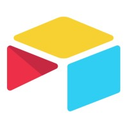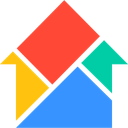Airtable vs Hygger (2025 Comparison)
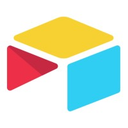
Airtable combines the simplicity of a spreadsheet with the power of a database, offering customizable templates and robust automation features. It's a versatile tool for organizing and managing data efficiently.
- Highly customizable templates.
- Seamless integrations with other tools.
- Robust automation features.
- Steep learning curve for beginners.
- Limited offline access.
Free plan?
YesStarting price
$20 per month per user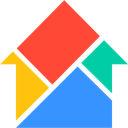
Hygger focuses on task prioritization and project management, providing excellent features like Kanban boards and roadmaps. Its user-friendly interface makes it accessible to teams of all sizes.
- Excellent task prioritization features.
- User-friendly interface.
- Strong project management tools.
- Limited integrations compared to Airtable.
- Basic reporting features.
Free plan?
YesStarting price
$7 per month per userWhat is Airtable?
Airtable is a versatile platform that combines the simplicity of a spreadsheet with the power of a database. It helps users organize their work, track projects, and collaborate with teams seamlessly. With its intuitive interface, Airtable allows you to create custom workflows, manage tasks, and store information in a way that suits your needs. Whether you're planning a project, managing a team, or tracking inventory, Airtable provides the flexibility and functionality to streamline your daily operations.
What is Hygger?
Hygger is a project management tool designed to help teams prioritize tasks, manage projects, and collaborate effectively. It offers features like Kanban boards, timelines, and roadmaps to visualize work progress and ensure alignment with business goals. Hygger's focus on prioritization helps teams make informed decisions, ensuring that the most important tasks are completed first. By providing a clear overview of project status and team performance, Hygger enables users to optimize their workflows and achieve better results in their daily operations.
Pros and Cons of Airtable vs Hygger
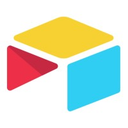
Pros & Cons of Airtable
- Airtable offers a wide range of customizable templates that allow you to tailor your workflows to your specific needs. This flexibility makes it easy to adapt the tool to various use cases, enhancing its versatility.
- Airtable's extensive integration options allow you to connect with your existing tech stack, ensuring seamless data flow between applications. This enhances its functionality and makes it a valuable addition to any team.
- Airtable's powerful automation tools allow you to streamline repetitive tasks and improve efficiency. By creating custom workflows that trigger actions based on specific conditions, you can enhance your team's productivity.
- Airtable's extensive features and customization options can be overwhelming for new users. It may take some time to fully understand and utilize all of its capabilities, especially for those without technical expertise.
- Airtable's reliance on an internet connection can be a drawback for users who need to access their data offline. While the mobile app offers some offline functionality, it is limited compared to the full desktop experience.
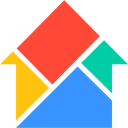
Pros & Cons of Hygger
- Hygger's focus on task prioritization helps teams make informed decisions, ensuring that the most important tasks are completed first. Its prioritization matrix and Kanban boards provide a clear overview of task status.
- Hygger's intuitive interface makes it easy for users to navigate and manage their projects. Its straightforward setup and minimal learning curve make it accessible to users of all skill levels.
- Hygger offers a range of project management features, including timelines, roadmaps, and task tracking. These tools help teams stay organized and ensure alignment with business goals.
- While Hygger offers some integration options, its selection is more limited compared to Airtable. This may be a drawback for teams that rely on a wide range of tools and need seamless connectivity.
- Hygger's reporting features are more focused on project management metrics and may not provide the advanced analytics capabilities that some teams require. This could be a limitation for users who need detailed insights into their data.
Airtable vs Hygger: At A Glance
Value to Price
Airtable offers a robust set of features at a competitive price, making it a great value for teams looking to streamline their workflows. Its flexibility and ease of use justify the cost, especially for businesses that need a customizable solution. Hygger, while slightly less expensive, offers excellent prioritization tools that are ideal for teams focused on task management. If you need a tool with strong prioritization features, Hygger might be the better choice.
Ease of Use
Airtable's intuitive interface makes it easy for users to get started quickly, even without technical expertise. Its drag-and-drop functionality and customizable templates simplify the process of organizing and managing data. Hygger also offers a user-friendly experience, with Kanban boards and timelines that are easy to navigate. If you prefer a tool with a straightforward setup and minimal learning curve, Airtable is the better option.
Functionality
Airtable excels in functionality, offering a wide range of features that cater to various business needs. Its ability to integrate with other tools and automate workflows enhances its versatility. Hygger, on the other hand, focuses on task prioritization and project management, providing features like roadmaps and timelines. If your primary need is a comprehensive tool with diverse functionalities, Airtable is the superior choice.
Scalability
Airtable is designed to grow with your business, offering scalable solutions that can accommodate increasing data and team sizes. Its flexible structure allows for easy expansion and adaptation. Hygger also supports scalability, with features that help teams manage larger projects and prioritize tasks effectively. If you anticipate significant growth and need a tool that can scale with you, Airtable is the more scalable option.
Integrations
Airtable offers a wide range of integrations with popular tools, making it easy to connect with your existing tech stack. This enhances its functionality and allows for seamless data flow between applications. Hygger also provides integrations, but its selection is more limited compared to Airtable. If integrations are a key consideration for your team, Airtable offers more options to enhance your workflows.
Customer Support
Airtable provides reliable customer support, with resources like tutorials, webinars, and a community forum to assist users. Its support team is responsive and helpful, ensuring that users can resolve issues quickly. Hygger also offers customer support, but its resources are not as extensive as Airtable's. If you value comprehensive support and resources, Airtable is the better choice.
Security
Airtable prioritizes security, offering features like data encryption and access controls to protect user information. Its commitment to security ensures that your data is safe and secure. Hygger also provides security measures, but Airtable's offerings are more robust. If security is a top priority for your team, Airtable provides more comprehensive protection.
Overall Rating
Airtable's overall rating reflects its strong performance across various dimensions, making it a versatile and reliable tool for teams of all sizes. Its combination of functionality, ease of use, and integrations make it a top choice for many businesses. Hygger, while slightly lower in overall rating, excels in task prioritization and project management, making it a great option for teams focused on these areas. If you need a well-rounded tool with diverse capabilities, Airtable is the better choice.
Airtable vs Hygger: A Detailed Breakdown of Key Features
Customizable Templates
Airtable offers a wide range of customizable templates that allow you to tailor your workflows to your specific needs. Whether you're managing a project, tracking inventory, or organizing events, Airtable's templates provide a solid foundation to build upon. Hygger also offers templates, but they are more focused on project management and task prioritization. If you need a tool with versatile templates that can be adapted to various use cases, Airtable is the better choice.
Task Prioritization
Hygger excels in task prioritization, offering features like Kanban boards and roadmaps to help teams focus on the most important tasks. Its prioritization matrix allows you to evaluate tasks based on impact and effort, ensuring that your team is working on the right things. Airtable also offers task management features, but its focus is more on data organization and collaboration. If task prioritization is a key requirement for your team, Hygger is the superior choice.
Collaboration Tools
Both Airtable and Hygger offer robust collaboration tools that enable teams to work together effectively. Airtable's real-time collaboration features allow team members to edit and update information simultaneously, ensuring that everyone is on the same page. Hygger also offers collaboration features, with a focus on project management and task tracking. If you need a tool that facilitates seamless collaboration across different teams and departments, Airtable is the better option.
Automation
Airtable's automation features allow you to streamline repetitive tasks and improve efficiency. With its powerful automation tools, you can create custom workflows that trigger actions based on specific conditions. Hygger also offers automation features, but they are more limited in scope. If automation is a priority for your team, Airtable provides more comprehensive options to enhance your workflows.
Reporting and Analytics
Airtable provides robust reporting and analytics features that allow you to gain insights into your data and make informed decisions. Its customizable reports and dashboards provide a clear overview of your team's performance and progress. Hygger also offers reporting features, but they are more focused on project management metrics. If you need a tool with advanced reporting capabilities, Airtable is the better choice.
Mobile Access
Airtable offers a mobile app that allows you to access your data and manage your workflows on the go. Its mobile interface is user-friendly and provides the same functionality as the desktop version. Hygger also offers mobile access, but its app is more focused on task management and project tracking. If mobile access is important for your team, Airtable provides a more comprehensive mobile experience.
Pricing Comparison of Airtable and Hygger
We’ve compiled the pricing tables and highlighted the key features of both Airtable and Hygger to aid in your decision-making process. Let’s explore what each platform has to offer.
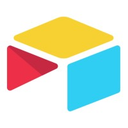
Airtable Pricing Plans
- Ideal for very small teams or lightweight needs.
- No cost involved for getting started.
- Access to key building blocks for applications.
- Unlimited read-only collaborators and form submissions.
- Charged per user with edit permissions.
- Annual billing cycle for cost efficiency.
- Prorated charges for users added mid-month.
- No charges for read-only collaborators.
- Flexibility for departments and large enterprises.
- Administrative features for better management.
- Annual billing for cost management.
- Prorated charges for new users.
- Unlimited organizational units and workspaces.
- Enhanced security and governance features.
- Contact sales for detailed pricing.
- Prorated charges for new collaborators.
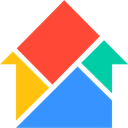
Hygger Pricing Plans
- Unlimited projects and boards to manage tasks.
- 100 MB storage for storing essential files.
- No credit card required for signing up.
- No long-term commitments, cancel anytime.
- Unlimited integrations with other tools and apps.
- Unlimited tasks to manage without restrictions.
- Monthly and annual billing options available.
- 20% discount on annual subscription.
- Branded workspace for a professional look.
- SAML SSO and Google Apps SSO for secure access.
- Unlimited API access for custom integrations.
- Premium support for priority assistance.
Our Rating Methodology
We thoroughly test each project management tool, evaluating key features like ease of use, functionality, and scalability. We also analyze user reviews to ensure our recommendations fit your needs. Each of the seven evaluation factors is weighted by importance to provide an accurate final rating, helping you avoid poor-quality tools and make informed decisions.
Airtable or Hygger: Which One Matches Your Business Needs?
Choose Airtable If You Need ...
- Highly customizable workflows
If you need a tool with highly customizable workflows that can be tailored to your specific needs, Airtable is the better choice. Its flexibility and versatility make it ideal for teams that require a personalized solution.
- Seamless integrations
If you rely on a wide range of tools and need seamless integrations to connect your tech stack, Airtable offers more options to enhance your workflows. Its extensive integration library ensures smooth data flow between applications.
Choose Hygger If You Need ...
- Excellent task prioritization
If your team needs a tool with excellent task prioritization features to focus on the most important tasks, Hygger is the superior choice. Its prioritization matrix and Kanban boards provide a clear overview of task status.
- User-friendly interface
If you prefer a tool with a user-friendly interface that is easy to navigate and manage, Hygger's straightforward setup and minimal learning curve make it accessible to users of all skill levels.
Frequently Asked Questions
 Which tool is better for task prioritization?
Which tool is better for task prioritization?
 Which tool offers more integrations?
Which tool offers more integrations?
 Which tool is more user-friendly?
Which tool is more user-friendly?
 Which tool provides better automation features?
Which tool provides better automation features?
 Which tool is more scalable?
Which tool is more scalable?
 Which tool offers better customer support?
Which tool offers better customer support?

Anastasia Belyh
Anastasia Belyh is a senior tech writer with over 15 years of experience in marketing, sales, and business software. Having worked in investment banking, management consulting, and founded multiple companies, her in-depth knowledge and hands-on expertise make her software reviews authoritative, trustworthy, and highly practical for business decision-makers.

